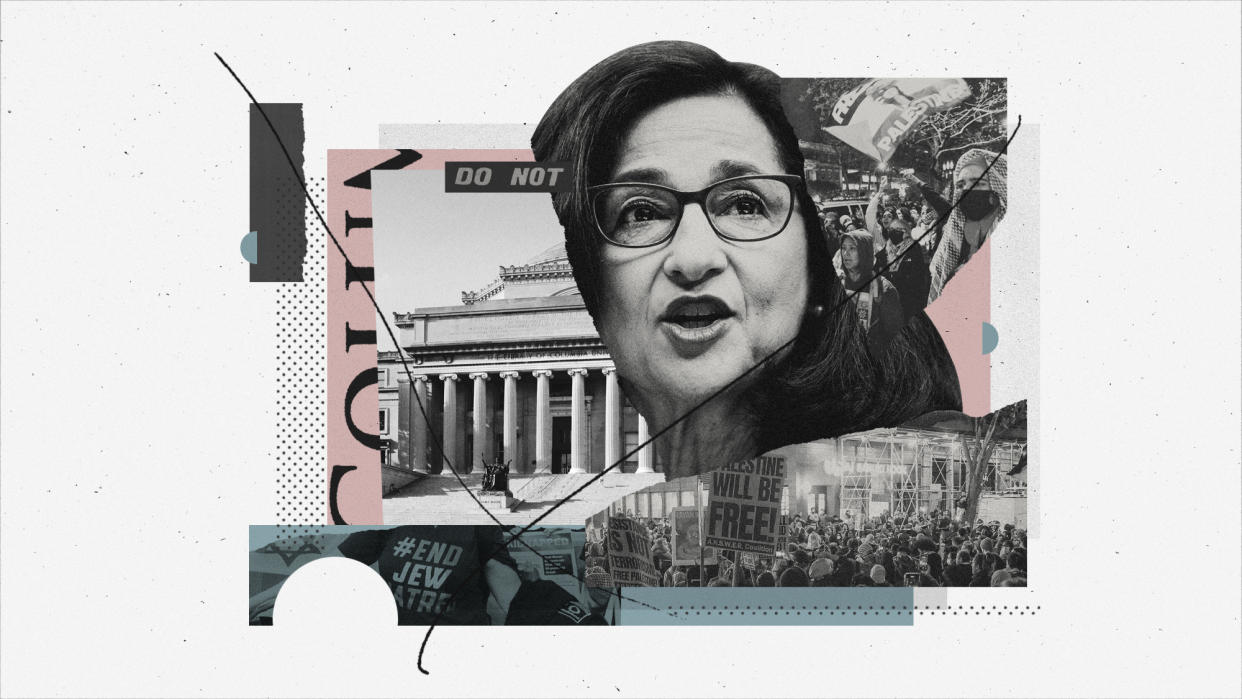Is the Gaza war tearing US university campuses apart?

Campus unrest over the war in Gaza "has reached a fever pitch in the final weeks of classes," said The New York Times, with confrontations between authorities and pro-Palestinian protesters at Columbia University, Yale University, New York University and others across the United States. The heart of the conflict: Administrators are "struggling to balance students' free speech rights and the need to protect Jewish students" from threats to their safety.
The crisis is particularly acute at Columbia, where a rabbi linked to the school "urged Jewish students to stay home" to avoid "tense confrontations" with protesters, CNN said. (In fact, everybody is staying home: The university soon announced it was shifting to remote classes for the final weeks of the spring semester.) The White House even weighed in, condemning "blatantly antisemitic" rhetoric after videos appeared to show some Columbia protesters expressing support for Hamas' deadly Oct. 7 attack on Israel.
"School administrators and local law enforcement have cracked down on the protests," Reuters said. More than 100 protesters have been arrested at Columbia, while other students have been suspended — and similar crackdowns have taken place at Yale, NYU and the University of Minnesota. Some Republicans want to see even more: Sens. Tom Cotton (R-Ark.) and Josh Hawley (R-Mo.) this week called on President Joe Biden to send in the National Guard.
What did the commentators say?
"Anti-Israel, antisemitic protests at Columbia, Yale and elsewhere are getting uglier," The Wall Street Journal said in an editorial. Protesters have carried signs honoring the "martyrs of Palestine" and suggesting pro-Israel demonstrators are the "next target" of Hamas' military wing. Columbia's move to remote classes doesn't help: "Protesters are winning if they're allowed to shut down classroom instruction." Administrators seem afraid to put an end to all this. "College presidents have to take charge, restore order and protect Jewish students" — or they should lose their jobs.
The crackdowns reveal that universities like Columbia "don't value critical thought as much as they value business as usual," Sarah Jones said at New York. It's true that protests can sometimes attract "bad actors," but it's unreasonable to suggest all the anti-war activity is antisemitic "when many of the demonstrators are Jewish themselves." The protests have been largely peaceful, which means the students are guilty only of "embarrassing their universities by applying their education to the real world."
"Tom Cotton has never seen a left-wing protest he didn't want crushed at gunpoint," Adam Serwer said at The Atlantic. Cotton, remember, was the author of the infamous 2020 New York Times op-ed that called on then-President Donald Trump to send U.S. troops to bring order to cities shaken by Black Lives Matter protests. Campus leaders should protect the safety of their students. But the "kinds of mass violence and unrest" that justify a National Guard intervention are absent, with troops more "likely to escalate tensions rather than quell them." This suggests the real reason for intervention is because "powerful figures find the protesters and their demands offensive."
What next?
It's an election year, so the protests will have political ramifications. House Speaker Mike Johnson (R-La.) will visit the Columbia campus this week, The Hill said, to highlight the "troubling rise of virulent antisemitism on America's college campuses." He called on Columbia University President Minouche Shafik to resign, while Republicans in Congress are vowing to withdraw federal funds from institutions that fail to protect Jewish students. Biden, meanwhile, is treading carefully: The Washington Post said he is trying to "strike a careful balance between condemning antisemitism on college campuses and supporting students' right to protest."
Columbia officials are trying to pull back from the brink of further confrontation. Administrators had warned protesters to clear their encampment by end of day Tuesday, The New York Times said, but later issued a statement that protesters had agreed to clear most of their tents and to "bar discriminatory or harassing language among the protesters." But the peace may be short-lived: The university senate is expected to vote Friday on a resolution censuring Shafik for calling police in to break up the protests.

